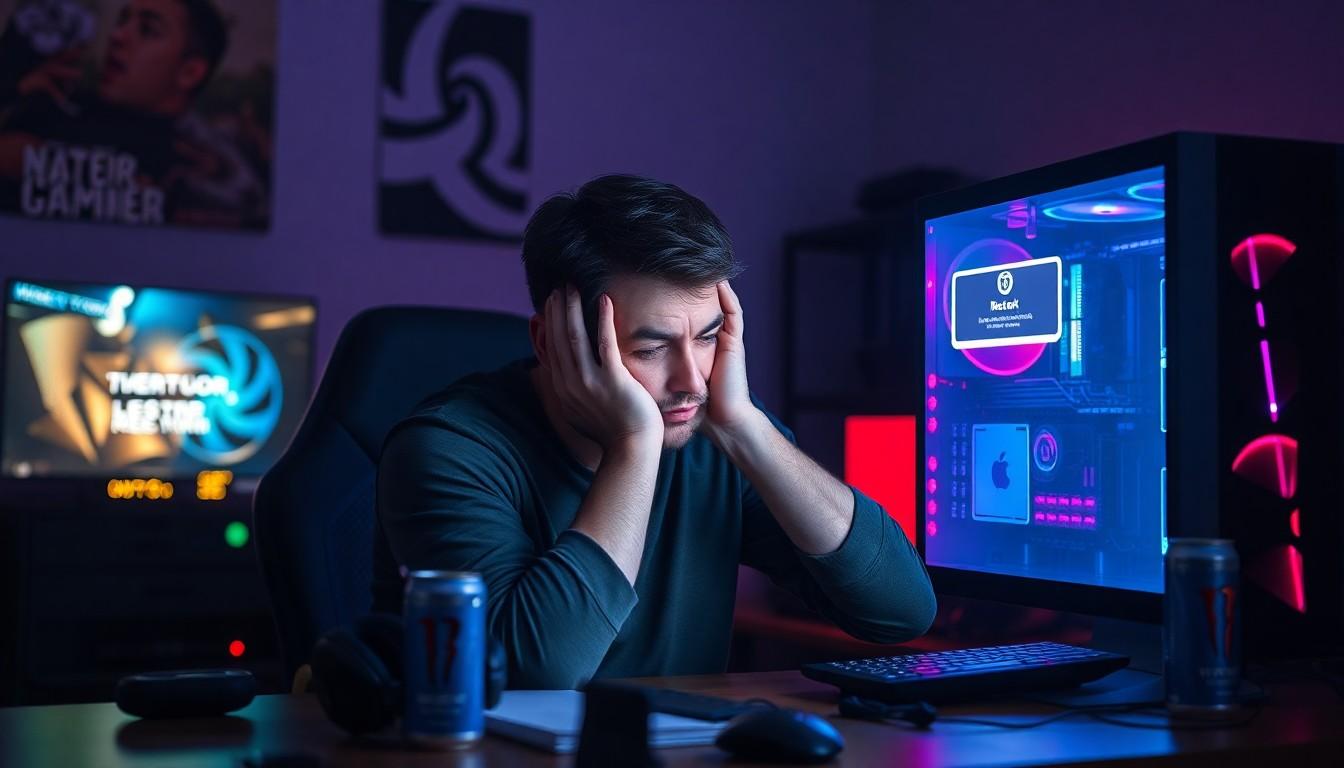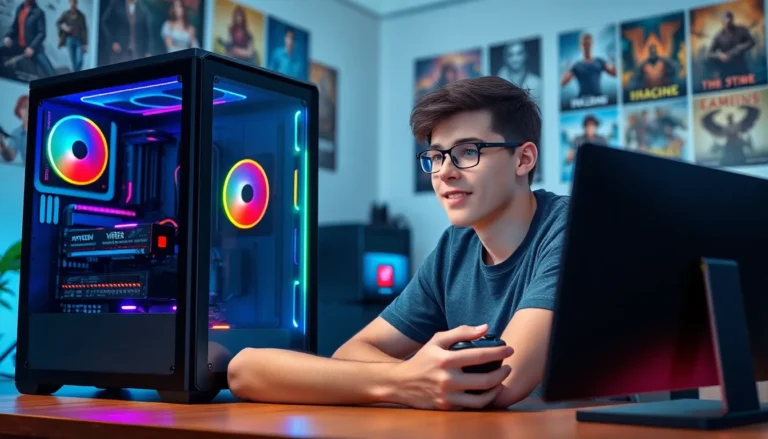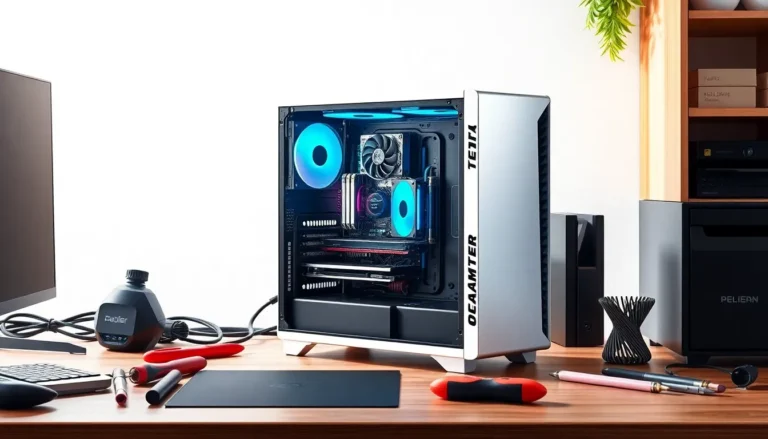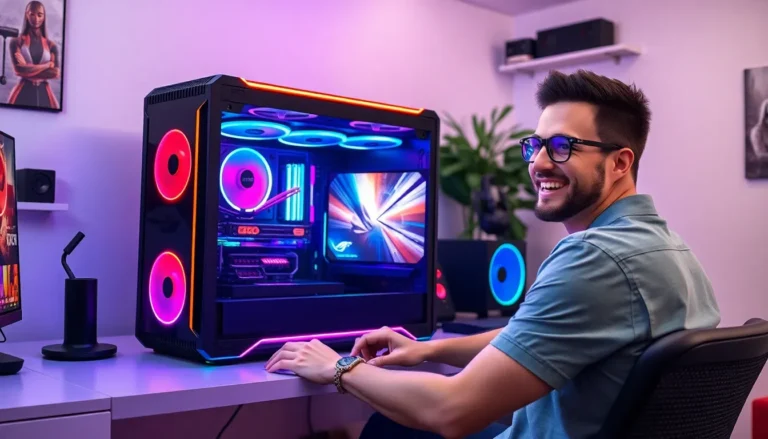Picture this: you’re deep into an epic gaming session, adrenaline pumping, and just when you’re about to score that game-winning move, your PC decides it’s time for a surprise nap. The screen goes black, and your dreams of victory vanish faster than your last slice of pizza. If this sounds familiar, you’re not alone. Many gamers face the dreaded random restart, turning intense battles into frustrating interruptions.
So what’s behind this annoying phenomenon? From overheating components to power supply issues, the reasons can be as varied as the games themselves. Understanding why your PC pulls this stunt can help you get back to conquering virtual worlds without the unexpected drama. Let’s dive into the common culprits and explore how to keep your gaming experience smooth and uninterrupted.
PC Randomly Restarts While Gaming
Experiencing random restarts while gaming frustrates many. Identifying symptoms and causes enhances chances of resolving the problem.
Common Symptoms of Restarting
Players often notice unexpected shutdowns during gameplay. Frequent interruptions can lead to disrupted sessions and lost progress. Overheating may cause systems to shut down suddenly. In some cases, error messages appear briefly before the restart occurs. Gamers may also experience screen freezes or stuttering before losing power. These signs indicate underlying issues that affect performance and enjoyment.
Potential Causes of Restarts
Overheating components often lead to restarts during gaming sessions. Graphics cards and CPUs generate significant heat under load. Inadequate cooling systems reduce airflow and raise internal temperatures. A faulty power supply unit can also cause abrupt shutdowns, impacting stability. Outdated drivers or software conflicts may contribute to the issue as well. Additionally, problems with RAM or motherboard can result in unexpected reboots. Understanding these causes aids in identifying solutions for a better gaming experience.
Hardware Troubleshooting
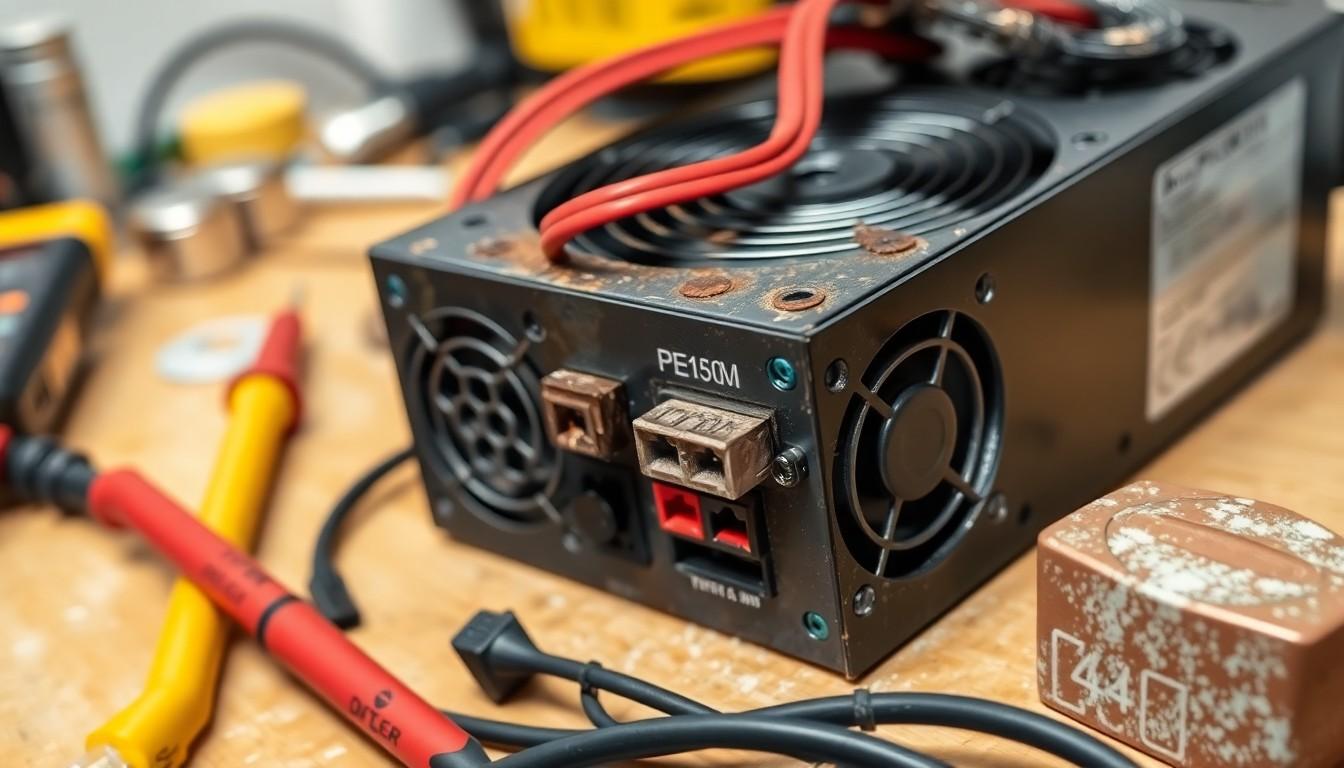
Understanding hardware issues is crucial when a PC randomly restarts while gaming. Several components might cause these disruptions.
Checking Power Supply
Begin with the power supply unit (PSU). A reliable PSU ensures stable power delivery. Inspect the wattage rating; it should meet the needs of all components. Look for signs of wear or damage, such as burnt connections or unusual noises. Voltage fluctuations can also indicate a failing unit. Consider testing the PSU with a multimeter or replacing it with a known good supply.
Inspecting Overheating Components
Next, examine potential overheating components. Both the CPU and GPU can generate excessive heat during gaming sessions. Cleaning dust from fans and heat sinks helps maintain optimal airflow. Additionally, ensure thermal paste is properly applied to the CPU. Regularly monitor temperature levels using software tools; temperatures exceeding 80°C may indicate cooling inefficiencies. Invest in additional cooling solutions if necessary.
Testing RAM and Storage
Testing RAM involves running diagnostic tools, such as Windows Memory Diagnostic or MemTest86. Faulty RAM can trigger unexpected restarts. Check RAM seating in slots; ensure they’re securely in place. Assess storage health with tools like CrystalDiskInfo. Corrupted storage can disrupt operations, leading to restarts. Replace any failing drives and ensure proper connections to avoid issues during gameplay.
Software Considerations
Software issues can also lead to random restarts during gaming sessions. Attention to drivers and operating system settings plays a significant role in maintaining system stability.
Drivers and Updates
Outdated drivers often cause instability. Each component, including graphics cards and chipsets, requires the latest drivers for optimal performance. Regularly checking the manufacturer’s website ensures access to recent updates. Installing updates often resolves bugs and enhances compatibility, which improves the gaming experience. Using device management tools makes verifying and updating drivers more streamlined. Prioritizing these updates forms a solid foundation for a stable gaming setup.
Operating System Settings
Operating system settings can significantly impact gaming performance. Ensuring power settings favor performance over energy saving often prevents random restarts. Configuring the system to avoid sleep or hibernation during gaming sessions also maintains stability. Additionally, disabling unnecessary background applications reduces resource strain. Monitoring system resource usage aids in identifying potential conflicts. Optimizing these settings contributes to a smoother gaming experience and minimizes unexpected interruptions.
Gaming Configurations
Proper gaming configurations significantly reduce the risk of random restarts. Specific adjustments can enhance stability and overall performance during gameplay.
Graphics Settings Adjustments
Adjusting graphics settings can prevent overheating, a common cause of PC restarts. Reducing texture quality and lowering resolution helps maintain optimal temperature levels. Limiting frame rates minimizes excessive strain on the graphics card. Disabling advanced features like ray tracing can also contribute to system stability. Regularly reviewing and modifying these settings ensures the gaming experience remains smooth, reducing the likelihood of interruptions.
Monitoring Performance During Gaming
Monitoring system performance during gameplay aids in identifying potential issues. Tools such as MSI Afterburner or HWMonitor provide real-time statistics on CPU and GPU temperatures. Setting alerts for overheating components allows for quick action. Tracking resource usage can reveal if background processes consume too much power. Keeping an eye on performance metrics during intense gaming sessions ensures smooth experiences without unexpected restarts.
Source of Frustration
Random restarts during gaming can be a significant source of frustration. By understanding the various hardware and software factors at play, gamers can take proactive steps to ensure a stable gaming environment. Regular maintenance of components like the power supply and cooling systems is essential. Keeping drivers updated and optimizing gaming settings can also play a crucial role in preventing interruptions.
By being vigilant and implementing the recommended strategies, gamers can enjoy a smoother gaming experience without the annoyance of unexpected restarts. With attention to detail and a commitment to system upkeep, the gaming experience can be significantly enhanced.

